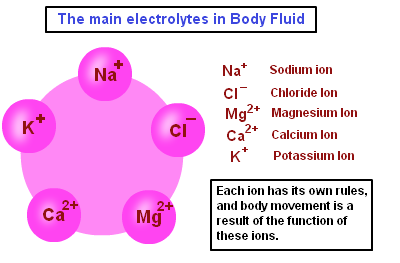 It’s only mid June and we’ve already been experiencing those hot, muggy days of summer. In fact, where I am, we’re experiencing the hottest summer in years. The temperatures have been in the 90s, the sun has been beating down, and at times it seems unbearable to be outside. And when you work outside for 8 hours a day, like I do, and the sun and heat is unavoidable, it’s pretty easy to overheat, or suffer from heat stroke or heat exhaustion.
It’s only mid June and we’ve already been experiencing those hot, muggy days of summer. In fact, where I am, we’re experiencing the hottest summer in years. The temperatures have been in the 90s, the sun has been beating down, and at times it seems unbearable to be outside. And when you work outside for 8 hours a day, like I do, and the sun and heat is unavoidable, it’s pretty easy to overheat, or suffer from heat stroke or heat exhaustion.
It’s important in this kind of weather to know about heat exhaustion, the symptoms and what you can do to prevent such problems.
What is heat exhaustion?
Heat exhaustion is when your body overheats due to high temperatures or strenuous activity and is not able to regulate and cool itself efficiently. The results of heat exhaustion may be as mild as heat cramps or as severe as heat stroke, which can be fatal.
Thankfully, heat exhaustion is preventable; however it is easy to overlook the oncoming symptoms of heat exhaustion. Many people think that an hour in intense heat without drinking water might be fine, but they soon find they are sweating more and more and growing more exhausted. That’s why understanding the symptoms and prevention of heat exhaustion is so important.
In hot weather, your body cools itself mainly by sweating since the evaporation of your sweat regulates your body temperature. However, when you exercise strenuously or otherwise overexert yourself in hot, humid weather, your body is less able to cool itself efficiently.
As a result, your body may develop heat cramps, the mildest form of heat-related illness. Signs and symptoms of heat cramps usually include heavy sweating, fatigue, thirst and muscle cramps. Prompt treatment usually prevents heat cramps from progressing to heat exhaustion.
You usually can treat heat cramps by drinking fluids or sports drinks containing electrolytes (Gatorade, Powerade, others), getting into cooler temperatures, such as an air-conditioned or shaded place, and resting.
When heat exhaustion progresses you may notice more severe signs such as goose bumps, intense sweating, dizziness, loss of equilibrium, headache, or nausea. When you start experiencing these symptoms, it is highly important to get to a cool place and rehydrate.
What to do to prevent heat exhaustion:
If you can’t avoid being out in the heat, you should do everything that you can to prevent the onset of heat related illness. The best thing that you can do is drink plenty of water—constantly be drinking water. If you think it’s enough water, it most likely isn’t, so keep drinking. Secondly, you should be making sure to replace sodium and chloride in your system, since they are lost in your sweat. The best way to be doing this is to be replacing electrolytes in your system.
What exactly are electrolytes and why are they so important?
Electrolytes, found in drinks such as Powerade or Gatorade, are charged ions that conduct electrical activity through the body. In the human body, they maintain fluid balance, muscle contractions, and neural activity. Water is drawn to areas where electrolytes, mostly sodium and chloride, are most concentrated. This means that electrolytes play a crucial role in maintaining the equilibrium of water in the body, especially during times of heavy sweating, when water is lost from the body. You lose electrolytes when you sweat, specifically sodium and chloride, so it is important to replace them when you are in the hot sun or working out.

Photo Credit: http://www.autismcoach.com
That’s why drinks such as Gaterade and Powerade are marketed towards athletes who sweat in large amounts. That is also why people who are not working out or sweating should not drink these sorts of fruit drinks. Adding extra electrolytes to your system can actually dehydrate you. So only use these drinks when you’re sweating often (Ace, Dugdale 2013).
In this hot weather, it’s important to stay hydrated and stay safe. If you can avoid being outside for extended periods of time, make sure to do so. If not, make sure that you are drinking plenty of water.
Until next time,
Kat
Sources:
Ace. Electrolytes: Understanding Replacement Options. http://www.acefitness.org/certifiednewsarticle/715/electrolytes-understanding-replacement-options/
Dugdale, David C. (2013). Electrolytes. Medline Plus. http://www.nlm.nih.gov/medlineplus/ency/article/002350.htm